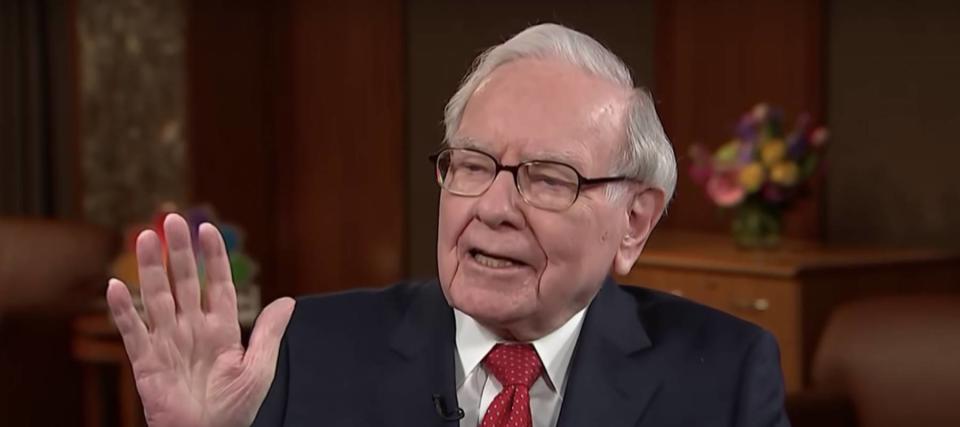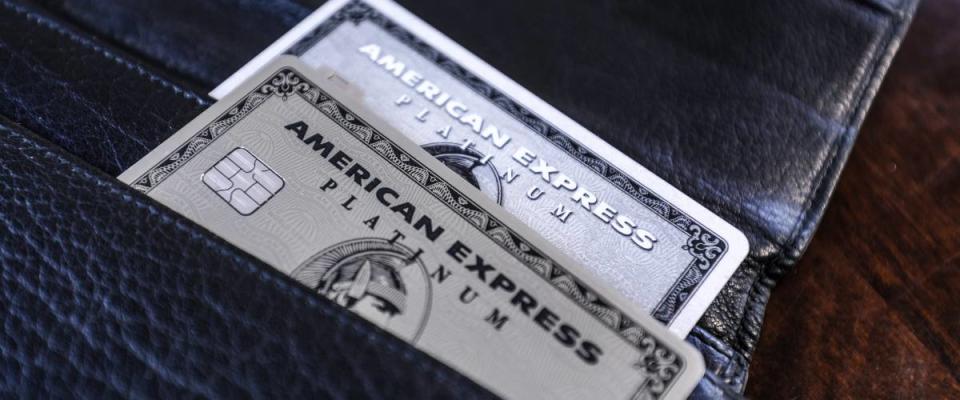Warren Buffett says these are the best stocks to own when inflation spikes — with consumer prices at a 39-year high, it’s time to follow his lead

With the Fed printing massive amounts of money, price levels are rising at a rate we haven’t seen in decades.
In November, U.S. consumer prices increased 6.8% on a year over year basis, the fastest pace since June 1982.
If you’re hoarding cash, spiking inflation means your savings won’t be able to buy the same amount of products and services as before.
Fortunately, investing legend Warren Buffett has plenty of advice on what to own when consumer prices spike.
In a 1981 letter to shareholders, Buffett highlighted two characteristics that help companies thrive amid high inflation: an ability to increase prices easily and an ability to take on more business without having to spend too much.
In other words, invest in asset-light businesses with pricing power.
Here are three Berkshire holdings that fit the description — plus one asset that may always be in demand no matter how high consumer prices climb.
American Express (AXP)

American Express demonstrated its pricing power quite recently as it raised the annual fee on its Platinum Card from $550 all the way to $695.
The company also stands to directly benefit in an inflationary environment.
American Express makes most of its money through discount fees — merchants are charged a percentage of every Amex card transaction. As the price of goods and services increases, the company gets to take a cut of larger bills.
In fact, business is already booming, as the company’s revenue jumped 25% year-over-year to $10.9 billion in Q3.
American Express is the third-largest holding at Berkshire Hathaway, only behind Apple and Bank of America. Owning 151.6 million shares of AXP, Berkshire’s stake is worth over $24 billion.
Berkshire also owns shares of American Express competitors Visa and Mastercard, although the positions are much smaller.
Yes, American Express trades at over $160 per share. But you can get a smaller piece of the company using a popular app that allows you to buy fractions of shares with as much money as you are willing to spend.
Coca-Cola (KO)

Coca-Cola is a classic example of a so-called “recession-proof” business. Whether the economy is booming or struggling, a simple can of Coke is still affordable to most people.
The company’s entrenched market position also gives it some pricing power. Besides, Coca-Cola can always rely on a trick it’s used in the past: keeping its prices the same but subtly reducing its bottle size.
Factor in its iconic brand portfolio and the fact that its products are sold in more than 200 countries and territories, and it’s easy to see why Coca-Cola fits nicely in a long-term portfolio.
After all, the company went public more than 100 years ago. It has survived — and thrived — in many periods of high inflation.
Buffett has held Coca-Cola in his portfolio since the late ’80s. Today, Berkshire owns 400 million shares of the company, worth approximately $23.1 billion.
Apple (AAPL)

No one who spends $1,600 for a fully decked-out iPhone 13 Pro would call it a steal, but consumers love splurging on Apple products anyway.
Earlier this year, management revealed that the company’s active installed base of hardware has surpassed 1.65 billion devices, including over 1 billion iPhones.
While competitors offer cheaper devices, many consumers don’t want to live outside the Apple ecosystem. That means, as inflation spikes, Apple can pass higher costs to its global consumer base without worrying as much about a drop in sales volume.
Today, Apple is Buffett’s largest publicly traded holding, representing more than 40% of Berkshire’s portfolio by market value.
One of the reasons behind that concentration is the sheer increase in the tech giant’s stock price. Over the past five years, Apple shares have surged more than 500%.
Remember, if you don’t want to pick individual tech stocks after the sector’s massive bull run, you can always build a diversified portfolio automatically just by using your “spare change.”
A ‘finer’ way to hedge?

A word of caution: Stocks often correlate with each other. So in a market sell-off, even the most solid blue-chip companies are likely to tumble.
The good news? Stocks aren’t the only asset that has the potential to beat inflation.
Check out fine art, for instance.
Contemporary artwork has outperformed the S&P 500 by a commanding 174% during the same period, according to the Citi Global Art Market Chart.
More importantly, this “real” physical asset has very little correlation with the stock market.
According to Deloitte’s latest Art & Finance Report, 85% of wealth managers believe art should be included as part of a wealth management service.
But the question is how to do it and deal with the challenges.
It’s true that investing in fine art by the likes of Banksy and Andy Warhol used to be an option only for the ultra-rich, like Buffett. But with a new investing platform, you can invest in iconic artworks too, just like Jeff Bezos and Peggy Guggenheim.
This article provides information only and should not be construed as advice. It is provided without warranty of any kind.




